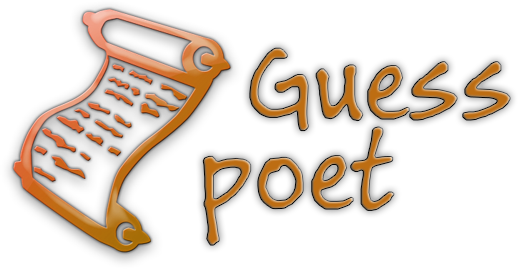Spike Milligan [1918-2002] Irish     
Rank: 101
Poet (with poems)
Children, Humour, Nonsense
Comedian, actor.
Spike Milligan was born in India, the son of a highly mobile British military officer and spent his childhood in various places in the Far East. In his lifetime he found fame as actor / comedian / director / playwright / poet / author but is most famous as one of the original `Goons`
Milligan`s earliest recorded stage appearance was in a grade-school production of The Nativity. His career proper began in 1936, when he hit the cabaret and music-hall circuit as a comic/musician. In 1950, Milligan launched the nonsensical BBC radio series Crazy People, which would evolve into the legendary Goon Shows. He appeared with fellow Goons Peter Sellers and Harry Secombe in such diverting film fare as Down Among the Z Men (1952) and The Case of the Mukkinese Battlehorn (1956). Equally balmy have been Milligan`s stage shows and novels, many of which (The Bed Sitting Room, Adolf Hitler: My Part in His Downfall etc.) have been translated to the Big Screen.
British telly viewers are familiar with Milligan`s multitude of calculatedly short-lived comedy series, bearing such monikers as A Show Called Fred and Q5; Americans were treated to a tantalizingly brief sample of the Milligan insanity when he appeared on the 1970 summer-replacement series The Marty Feldman Comedy Series. Generally cast as a petty crook or ineffectual authority figure, Milligan has essayed dotty supporting roles in several all-star films, notably The Three Musketeers (1973), Last Remake of Beau Geste (1977), History of the World Part One (1981), and Yellowbeard (1983).
He has also penned several children`s books, bearing such titles as The Bald Twit Lion. With all this to his credit, it`s little wonder that Spike Milligan once listed "sleeping" as his favorite pastime.
~~~~~~~~~~~~~~~~~~~~~~~~~~~~~~~~~~
By Michael Palin
His film The Running, Jumping & Standing Still Film (1959) was way ahead of its time and encouraged a lot of us who wanted to make films in that surreal vein. That will be remembered, as will his books. The latter were never consistent, but they had some brilliant jokes and turns of phrase, and some genuinely moving reminiscences of the war. There was a side of Spike that was poetic, and he was rather a good poet. One of my particular favourites went The boy stood on the burning deck/ Whence all but he had fled/ Twit. His children`s books were popular - my own children`s favourite was Badjelly the Witch.
Though Spike had a very successful career, he regretted not having more television exposure after the Q shows. He was never ignored, but there was a feeling in Spike that the powers-that-be never really appreciated him. Yet that was one of the sources of his energy - a feeling close to paranoia. There was an obsessiveness in his work: he wrote intensely and things had to come from deep within him. The heart of Spike was in everything he wrote.
He campaigned for causes such as the environment and animal rights, and almost felt an identity with the animals and trees he fought for. He had an earthy, strong, spiritual quality and would never back down. That sometimes made him look a bit foolish, but the brilliant thing about him was that he could make a joke about anything, take on anybody.
On the TV show to celebrate his 80th birthday, the presenter was talking about him and you suddenly heard this voice from behind the set - "shut up and get on with it". It was Spike. Even at the age of 80, he was sending things up, and refusing to lie down and be conformist.
Funny, Money, Chance, Dad, Easter, Happiness, Health, Marriage, Thankful |  |